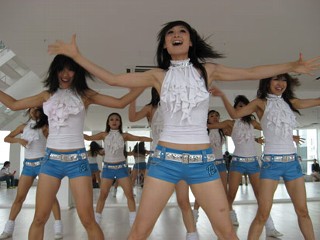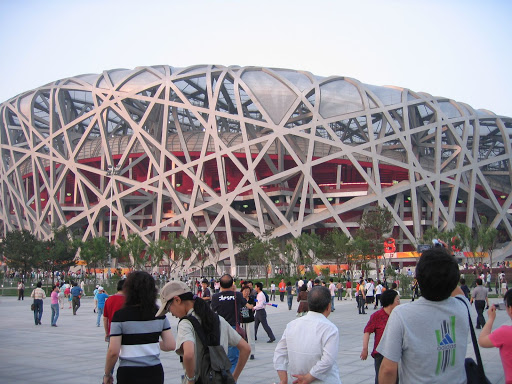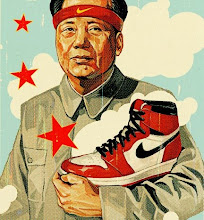 One of the newest developments in the realm of Chinese sport has been the interest in cheerleading and cheers competitions. Since before the 2008 Beijing Olympics, there has been a drastic increase in mainstream fascination, participation and expansion of the "sport". Although this seems like less of a blog-worthy development, it is still an interesting aspect of Chinese culture that is changing.
One of the newest developments in the realm of Chinese sport has been the interest in cheerleading and cheers competitions. Since before the 2008 Beijing Olympics, there has been a drastic increase in mainstream fascination, participation and expansion of the "sport". Although this seems like less of a blog-worthy development, it is still an interesting aspect of Chinese culture that is changing.When I first arrived in China, there were very few, if any cheerleaders of any kind. Although there were forms of dance in traditional Chinese culture, there was definitely a lack of a performance art that combined athletic maneuvers, performance and peppiness. One can even make the argument that traditional Chinese culture frowned on this type of performance for it wardrobe and style.
Earliest forms of cheerleading in China were glorified jumping around of cute girls in relatively skimpy outfits during timeouts at Chinese Basketball Association (CBA - the Chinese national basketball league) games. These performances were often elementary and actually quite embarrassing to watch.
However, as the Backstreet Boys and Britney Spears influence on pop dancing (as well as Korean and Japanese pop) changed somewhat Chinese pop singers, this influence has also translated into the increased recognition and better accented moves in cheer circles. In the past months, there has been a noticeable improvement in everything cheerleading related.
During the preparations for the 2008 Beijing Olympics, cheerleading professionals from the US were invited to come to China to help mentor, train and develop girls who were going to perform at the games. In total, China trained 200,000 people to cheer in preparation for the Olympics. This national initiative really helped improve Chinese aspiring cheerleaders.
Without knowing how many Chinese schools have cheer programs, it is notable that many TV programs include cheer performances and competitions of many Chinese schools. There has been definitely an increase in peppiness.
While these programs are becoming more frequent, coverage of international competitions have also been broadcasted. As I am writing this post, I am watching the 2008 World Aerobics competitions on the main Chinese sports channel (CCTV5). Other events, including the US cheer championships usually held in Disneyworld, have also been given prime exposure to Chinese audiences.
Although this type of performance dance/sport is still in its infancy in China, it has been marked by notable investment and development (just as in every other industry in China).
















